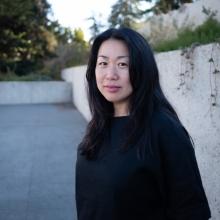Event

Descriptions of Chinese religiosity have been paradoxical: classic social scientific accounts posit a tendency toward materiality and particularity, paired with an absence of transcendental, universalist leanings; in recent decades, the rise of religious practices has been described both in terms of a thirst for religious freedom and a spiritual vacuum left in the wake of Maoism. Meanwhile, in psychiatric literatures on China and Chinese diasporic communities, somatization has been described as a cultural (and at times political) augmentation of depressive symptomatology—rather than psychologized accounts of mood and emotion, patients are said to experience bodily forms of anguish. Rarely are these conversations brought together. Drawing from ethnographic research in Henan province and in Shanghai across temples, home altars, and churches, this talk explores accounts of pain as embodied signals of divine desire in spirit mediumship and charismatic Christianity. It considers how these grammars of pain trace divergent cosmopolitical visions, then turns to the status of the mind as both instrument of and hindrance to spiritual practices of discernment. Imploding the historical present through messianic horizons, the body in pain becomes a site for asking: What does God | what do the gods want?
Emily Ng is Assistant Professor in the Department of Anthropology at the University of Pennsylvania. Her work centers on madness and subjectivity, religion and cosmopolitics, and how historical worlds and wounds reverberate across geographies and generations. Ng has conducted ethnographic research in urban and rural China, and alongside her anthropological work, she has trained clinically as a therapist. Her first book A Time of Lost Gods: Mediumship, Madness, and the Ghost after Mao (University of California Press, 2020) explores madness between psychiatric and cosmological registers, and personhood between generational impasse, crises of sovereignty, and haunting. Recently, she has been working on sensory experiences of the unseen across religious communities in China as embodied signs of divine desire.
This is a hybrid event. Register here.